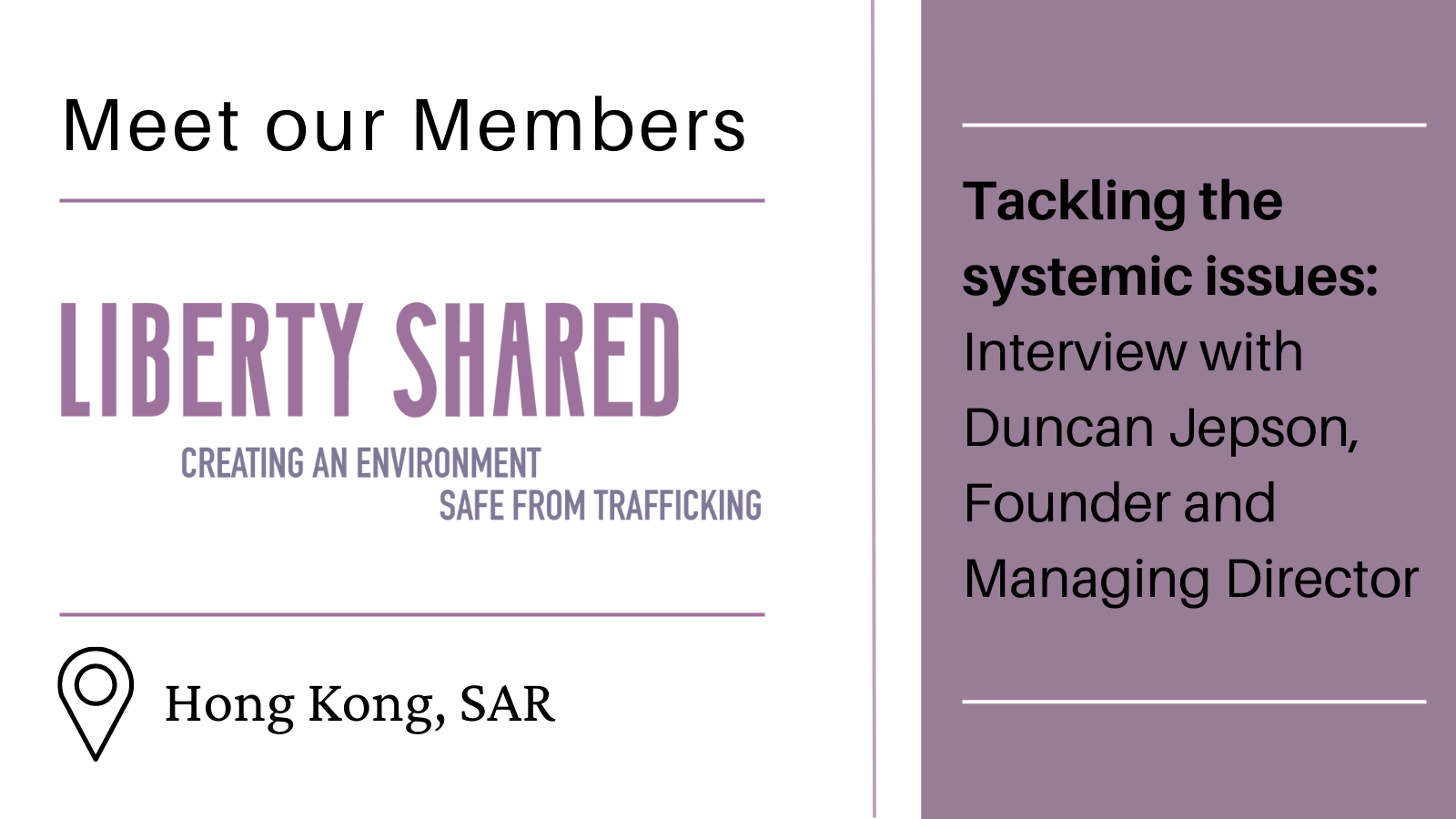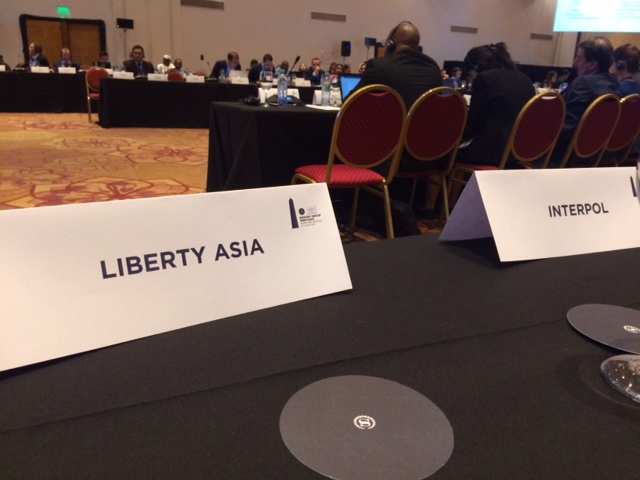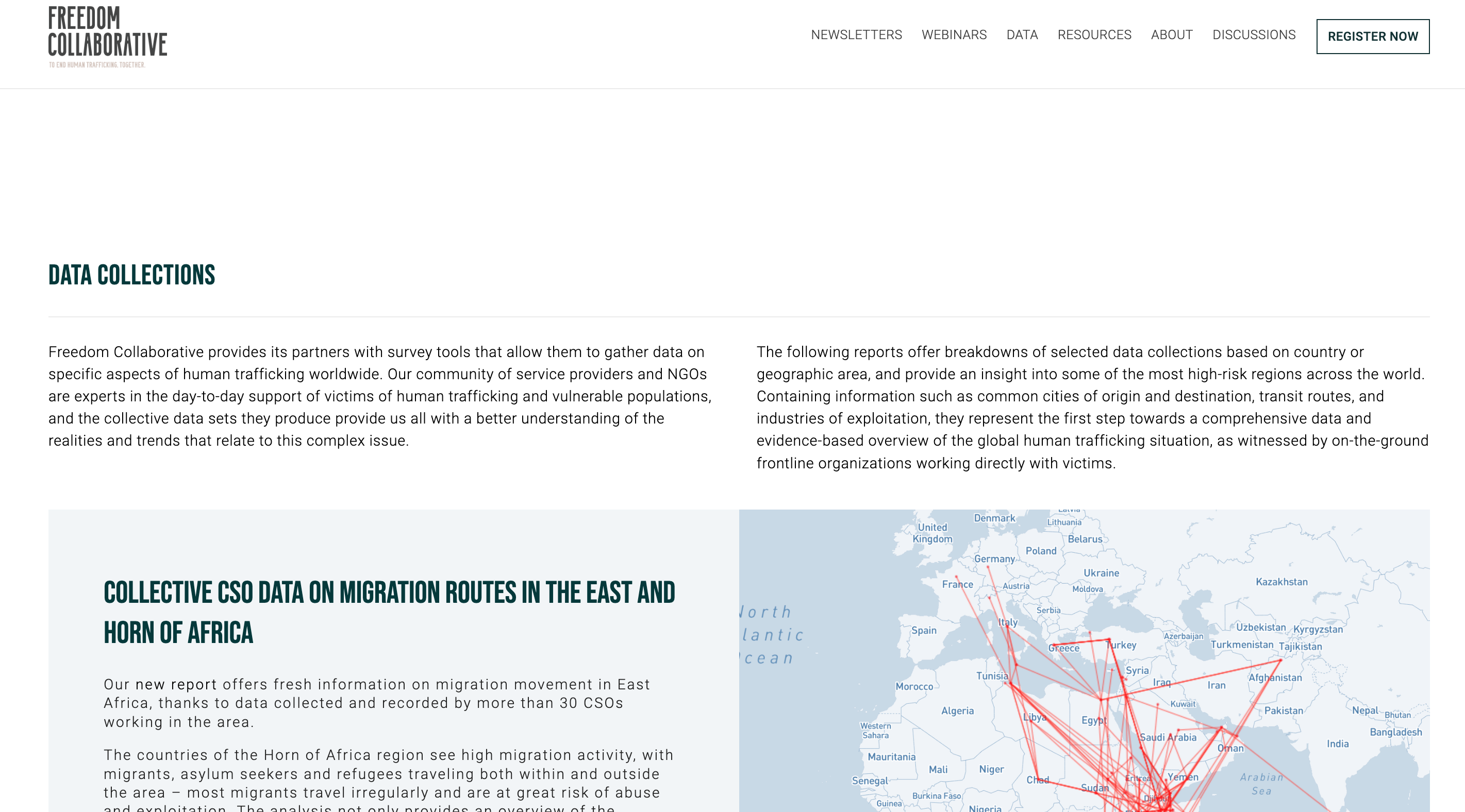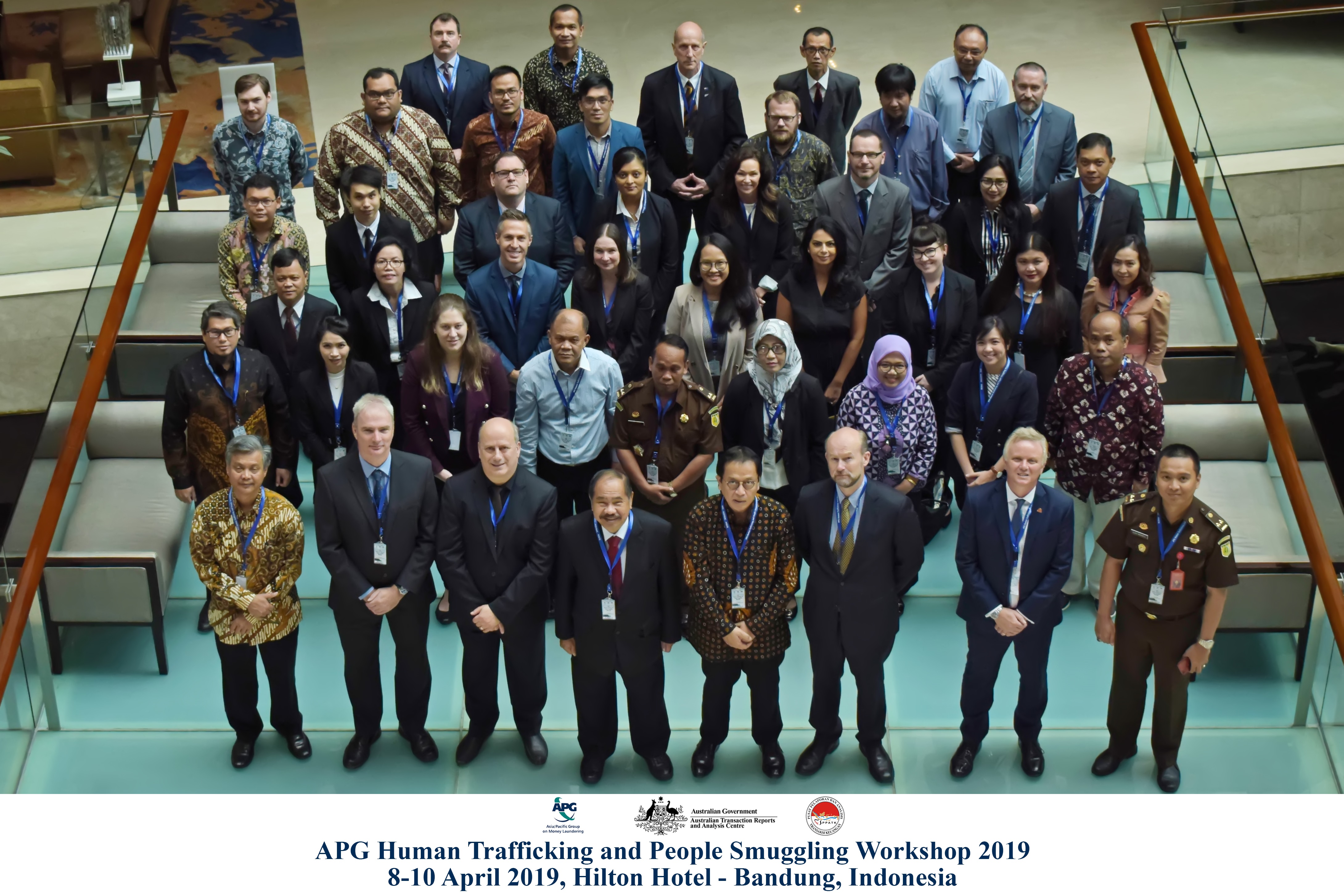
Lee la entrevista en español aquí
Liberty Shared is a member of GAATW based in Hong Kong. Jennifer Janssen and Borislav Gerasimov from the GAATW Secretariat conducted this interview with Duncan Jepson, Founder and Managing Director of Liberty Shared, in June 2022, to better understand the organisation’s history, current work, and context.
Borislav Gerasimov: Tell us about yourself and Liberty Shared. When was the organisation founded and why?
Duncan Jepson: I was working as a lawyer in finance for about 15-16 years. Prior to that, I worked on supply chains in China. I was a filmmaker for a long time, did documentaries and feature films, and I've been a writer throughout that. Then Liberty Shared was established. I wanted to work on the issue of abuse of vulnerability primarily. I started out by working on social mobility and wildlife trafficking issues in Hong Kong. That led me to think about vulnerability of populations in developing countries that have very limited local charitable support, and then I made a film in Nepal about two young people, one of whom had been trafficked, and the other homeless, and how they had chosen to build a life together in one of the poorest countries. I made that film and then I decided to help more. I became much more aware of the issue of abuse of vulnerability particularly through sexual labour, and forced labour. I thought we needed to work systemically to change the system that allows people to be vulnerable and then abused.
I was serving on the board of a charity in Nepal and one of its sources of funding suddenly dried up. We had to quickly do something to raise money. Underneath our building, there was a freshwater aquifer. And there was a proposal to drill, drain the aquifer, and then sell bottled water. It went to the board, and I thought about it and I said no, I'm sorry, this thing has been here for thousands of years, I think we should just leave it and we'll figure out another way to do this but we will have to stop some services. I felt so strongly that we were not going to exhaust every single resource that there is just to keep going. That made me think that there's got to be a systemic way of approaching things. Running about trying to absorb every single resource to help each individual person is not changing the structure of the problem. For some people, and obviously I was doing this at the time, providing aid and care is vitally important, but you're not going to absorb all the resources of the planet, which just doesn't make sense. So I thought we have to find more sustainable ways and so that's how Liberty Shared was born.
 |
In April 2017, Steve Farrer, our director of information and intelligence programs, which focused on using anti-money laundering to disrupt proceeds from human trafficking, was invited to present at the Financial Action Task Force meeting in Moscow and then to attend the Egmont Meeting in 2018 - we finally got a seat at one of the tables and the dialogue about banking and HT started properly at a global level. |
First, frame the problem that helps identify potential action, labour exploitation is fundamentally about people, products, and money. And so the question is then what is it that you can do to address any of those three things. You can provide care to the workers, but that wasn't what we were going to do. What we can do is make sure that we communicate workers’ experiences and try to hold employers and managers and corporations, accountable. You can do something on products like stop the products from being sold. In our case, we did things like a trade ban and so forth. For the money, this is where I started because that was my background in finance. Could we disrupt the flow of money using the anti-money laundering framework? That was another thing we started.
We started to identify where we could make a difference long-term, over maybe five, seven years, and then pursue that. In relation to sexual exploitation, the question was: what can we really do? There is the care aspect of it, which we're not going to do. So one thing that we must do is be able to gather lived experiences of victims and make sure that those can be used to improve services, to improve funding - certainly structural change - but also to improve arrests and other interventions. That’s why we created the Victim Case Management System (VCMS). This was fundamental because without information and records no life will be improved, and no justice will be served. VCMS helped with labour trafficking victims as well.
Another thing was, if you're going to do all this, you need to have the attention and interest of the larger NGO community and you want to see them working together. So we created Freedom Collaborative and now you could see the strands of what we were doing come together. Ultimately, you want to see all the things you built thrive and become not just their own programme, but their own entity.
Jennifer Janssen: What is unique about Liberty Shared’s work and approach?
DJ: We work on systems rather than individuals and not many NGOs do that. We’ve taken a long-term view. Most NGOs are, unfortunately, bound by the funding cycles that they commit to. We obviously have those too, but we managed to organise them in a way that didn't prevent us from wavering from our long-term strategy.
I was talking with a donor consultant and I showed her the strategy that I had created in 2015 and then showed her the 2021 version and I was glad to see that the strategic thinking worked. We stuck to the same strategy and I think in some places it's proved to be successful, in other places it could have been better, and in some it didn't work at all. But I think we had more successes than failures and that was very important. Those things don't necessarily make us unique, but they perhaps make us a bit of an outlier.
We are very passionate about learning through failure and we were not bothered about talking about failure. I'm keen on a fast fail approach; we learn from it and move on.
BG: Do you focus on specific world regions?
DJ: Because we are working on the system we aren't necessarily bounded by geography, but just by our resources and reach. If you take the issue of labour abuse (if you think of it as a framework of people, products, and money) and you were to work globally with workers that would be very difficult because you’d need a huge team to engage with workers. If you want to work on products, that's slightly different. You could look at markets, which is what we’ve done, you could look at distribution channels. Money is a bit easier because it does work globally and so that's where we started because the money aspect had a global presence. And if you could change the tune of banks and financial institutions, which is where we started in 2012, then you can have a global impact without having to go build global locations.
The second thing then was products. We could look at products and say well, let's look at tobacco in Malawi, or palm oil in Malaysia, or fishing. But the truth is you're going to have to pick your product and see what you can do. So from the very beginning, I picked palm oil because it was two countries, two jurisdictions, two markets, a known set of large buyers, and a known set of suppliers. The basic way you look at it is as a complex adaptive system and you map out the stakeholders within that system. Bearing in mind that the system will always adapt and behaviours will emerge. You can never know everything. So you have to think which of the stakeholders that you've identified have a serious influence on the shape of the system. And if they can influenced to change the way the system is shaped, then it might have some effect, and obviously what I'm trying to do is reshape the system in favour of vulnerable people.
Then in terms of geography, it's a question of where you think you can have the most impact. You could work on Malaysian palm oil that has impact in the US, in Europe, and obviously in Malaysia. But you will have impact in Indonesia because they will say well, the goods are banned in the US coming in from Malaysia so we should take that opportunity. Your geographic focus then can vary at different levels, it can be global, but sometimes it can be purely local. For example, I'm based in DC because the reality for me was that I wanted us to remain a small NGO to be impactful, get scale on resources, and so when you think of where you will have the most impact for your resources, the US still has the largest economy, it has the currency of trade, and it is one of two superpowers. Here you can have a global impact. And you want to have global impact because that's the most you'll get for your money and resources.
|
|
In 2019, the new director of the anti-money laundering program, Val Farabee, worked with the Asia Pacific Group, a part of the Financial Action Task Force, to create a training workshop for national money laundering intelligence units using the wide range of typologies she had developed. |
JJ: What are some successes that you're most proud of?
DJ: One thing that’s made me proud is the Freedom Collaborative. When I look at it, it’s a community people use, it’s a good thing, it helps the community help itself. It’s a way for people to work together and learn together. My last initiative for Freedom Collaborative, before it spun out of Liberty Shared, was to create the Advisory Community, giving the platform an intergenerational focus.
I'm also proud of the work we did on anti-money laundering, which I started ten years ago. The Financial Action Task Force are the global body that provides guidance and direction on money laundering and our aim was to have some sort of voice with them. We are nobody’s in the grand scheme of things but in 2015 we get invited to one of their meetings to present on money laundering and human trafficking, and eventually we helped them provide training, and we contributed to one of their typology documents. We did have global impact in the way that banks look at human trafficking now and I’m very proud of that.
I’m also proud of how we applied victims’ lived experiences; we made gathering information from the ground central to what we do and making sure that information was not lost or hidden but was communicated to people. And we’ve done that very well. Whether through VCMS or through the work we did on corporate accountability, and money laundering. I think that's something that is central to what we do: listening to victims and vulnerable people, and then taking what is relevant and important and providing that information to people who then act on it. Two weeks ago we signed an memorandum of understanding (MOU) with the Department of Homeland Security's Center for Countering Human Trafficking and Forced Labor to support the investigation of forced labor cases. I am most proud of our work to support the opening of some of the first potential criminal investigations of corporations involved with and benefiting from forced labor. It is a bit of history!
 |
In 2015 we were still testing the newsfeed on Freedom Collaborative and by 2022 the design had changed completely and FC became a significant contributor to trafficking data collection, with a membership of over 5000 professionals. |
BG: I want to go back to something you mentioned earlier, about banning products, for example, from entering the US. There are concerns that such actions might just lead to the closure of businesses and the layoff of workers. In your experience, what is the impact on workers and employers? Has it led to improved working conditions?
DJ: In the cases we've worked on, yes.
If you're looking at a company and using this mechanism to ban their products from the US, you are having an impact on at least a couple of things. First, if U.S. CBP act and the companies goods are banned from entering the U.S. then it may reduce their revenue stream; it might not be significant, but it might be hugely significant. Second, by reducing their revenue stream, and essentially banning them from a market in the future, their investors may become very concerned - why should they keep investing in a company if potentially the company has no future in one of the world’s largest markets? The first thing to remember is, it is not wise to go and look at a business that is small, or even medium size, because if their market is reliant on the U.S. then this could severely damage their solvency. Worse still that could push the company into receivership because they no longer have the liquidity to service their cash requirements. This can still happen to a large company, but large companies can find alternative sales opportunities or raise short-term liquidity. The idea that we're going to come up with an action or a set of activities that is just going to be resolute, without mitigation, is not possible. If you think about palm oil, the Malaysian industry, like any businesses want to sell it into the U.S. or European markets, but in reality they do sell the bulk of it to India and China already. What happened and what's interesting - and this is the point - is that you can never know what actions and reactions will emerge. Indonesia suddenly decided for about a couple of months to stop exports and suddenly there are all these US clients that want palm oil. Malaysia can't sell to them, at least two of the largest businesses in Malaysia can’t sell to them. And it's that kind of sudden restriction on opportunity that makes the investment community, and the suppliers look hard at the situation. You can't plan for any of that, you can't strategize, it's just how a complex adaptive system behaves.
One is not trying to ruin the company because you want the jobs to exist, but you want the jobs to be better. You want workers to be treated better and the company will have to invest money in these improvements. What you want to do is highlight to a company that this is of commercial importance, that how they treat workers is not just a human rights argument, it is a commercial argument. You're trying to show them that they have to incorporate this issue into the economics and value proposition of their industry. And that's what we try to do.
 |
In July 2022, Director Cardell T. Morant of the Center of Countering Human Trafficking and I signed the MOU to support the first criminal investigations of global corporations using forced labor in their supply chains. Finally there are ongoing investigations putting pressure on corporations to eliminate forced labor! |
Our ultimate goal is about accountability. We work closely with U.S. federal law enforcement and have a relationship, through the MOU, with them because we want them to open cases and we want them to hold individual businesses accountable in a criminal justice sense. The trade ban is a useful tool for making this become an economic and commercial problem, not simply a human rights issue. For the people in our community, it's important to realise there are only a small number of mechanisms you can use; corporate accountability is very nascent and it doesn't happen very much.
JJ: You spoke earlier about learning from your failures, which is very important. Is there a failure you would like to share?
DJ: We started working on a global hotline a few years ago and that didn’t work. We then had an idea to implement a hotline network rather than a hotline, but we just couldn't get the interest of funders. We should have done more work on the investor side of things, that work needs completing. With VCMS, it is a difficult balance between technology and its implementation, and the social behaviour side of things - it's easy to become wrapped in the technology. Looking back, we should have had a better balance of those things - technology is a tool, not a solution in and of itself.
There is also information and data that we could have gotten more out of if we did things quicker, if I'd moved to DC sooner. There are relationships that we should have worked on more, and there are relationships that we should have terminated earlier. There is definitely a list and we are working on publishing these in a new website we will launch in November.
JJ and BG: Thank you so much for your time.

